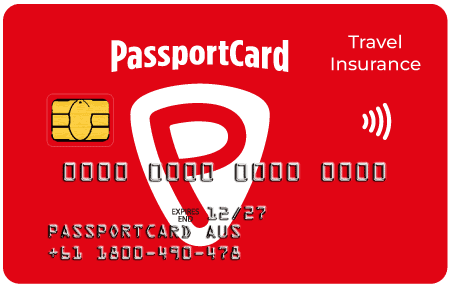

Bali Travel Guide
It’s a rite of passage for every Aussie to visit Bali at least once in their lifetime—and for most travellers, one Bali experience is enough to get them hooked for life!
Before you embark on your Bali escape, it’s always good to find out a little about what you can expect so you know how to prepare for your trip and get the most out of the experience. That’s why we’ve pulled together this handy travel guide, filled with everything you need to know before you visit Bali.
Best ways to experience Bali
There’s so much to love about Bali. Without having to travel too far from Australian shores, Bali serves up a rich cultural experience with something for everyone.
With so much on offer, it can be hard to know where to start when choosing what activities to include on your itinerary—but don’t worry, here are some top ideas of things to do in Bali that will make for an unforgettable experience.
- Practice yoga in Ubud – Having been practised in Bali for more than 1,000 years, many people travel to Bali every year with the sole purpose of practising yoga—and Ubud is the place to do it. The spectacular scenery alone can work wonders helping you to feel rested and restored
- Sip cocktails at sunset – There are plenty of great places to relax with a cocktail while taking in the beauty of a Bali sunset, but if you’re looking for one of the best and most iconic places to do it, Rock Bar in Jimbaran is seriously impressive
- Explore some of Bali’s ancient temples – Bali is home to many Pura (Hindu temples), some of which date back thousands of years. If you can, include a visit to temples like Tanah Lot, Pura Tirta Empul or Uluwatu Temple on your itinerary to experience some of Bali’s rich cultural heritage.

Visiting Bali
Climate
Bali can be beautiful to visit at most times of the year, but it is good to plan your trip around what you would most like to do while you’re there.
Bali is generally warm no matter what time you visit, with temperatures typically ranging between 28°C – 32°C year round. The climate in Bali is however separated into the wet and dry seasons, which could influence the type of activities you’ll be able to enjoy.
The dry season runs from April through to October, making it an ideal time to travel if your idea of a Bali escape involves plenty of time spent outside. If you plan to visit during the wet season (from November to March), expect to encounter frequent downpours.
Culture and language
Bali’s culture is richly steeped in a form of Hinduism called Agama Hindu Dharma which influences almost every aspect of the way the Balinese people live, with significant focus placed on achieving a harmonious balance between people, nature and religion.
Balinese people are generally very warm and welcoming toward tourists. While the official languages in Bali include Bahasa Indonesia (Indonesian) and Basa Bali (Balinese), many Bali locals also speak some English which makes it relatively easy for Australian tourists to get by in most areas of the island. You shouldn’t have any issues communicating in English in hotels or restaurants.
It is important to research and respect the local laws in Bali, as some things that might be acceptable in Australia are seriously frowned upon in Indonesia. Some activities (such as drug offenses) can attract very severe penalties, including the death penalty.
Getting around
While Bali is geographically small in size, it is densely populated and traffic jams are common, particularly in the areas which are most popular with tourists. The roads can seem somewhat chaotic compared to Australian roads, and driving can be very challenging if you’re not used to the conditions. For this reason, most tourists opt to use either taxis or private drivers to get around.
Motorbikes are another common form of transport in Bali. If you choose to hire a motorbike while in Bali, just make sure it comes with adequate vehicle insurance in case you have an accident. You’ll be pleased to know our travel insurance provides cover for claims that arise from the use of a motorbike, provided you wear a helmet and meet the local license requirements for the motorbike you are riding. If the motorbike is more than 125cc, you’ll also need to have a current and valid licence required for driving an equivalent rated Motorcycle in Australia.
Accommodation
Bali offers a variety of accommodation options including everything from luxury hotels and private villas through to budget backpacker hostels. You may even choose to stay in a Losmen, which are basic guest houses run by local Balinese families.
You’ll generally find that most of the accommodation in Bali is relatively affordable compared to what you might expect to pay in Australia when you consider the quality of the rooms and facilities and the level of service provided.
Entry requirements
If you are travelling on an Australian passport, you can apply for an e-Visa on Arrival (e-VOA) no later than 48 hours prior to travelling to Indonesia. Alternatively, you can also pay for a Visa on Arrival (VOA) at Ngurah Rai airport in Denpasar (Bali’s international airport).
It’s always a good idea to visit the Australian government’s Smartraveller website before your trip for the latest information and updates about travelling to Indonesia.
All benefits and covers are subject to the terms, conditions, limitations and exclusions listed in the Combined Financial Services Guide and Product Disclosure Statement (PDS) and on other policy documentation, including the schedule.
Please refer to the relevant PDS before purchasing our travel insurance to understand what is, and is not, covered by the policy to ensure it is the right cover for you.



Instant payouts on approved claims with PassportCard
When you choose PassportCard, you’ll enjoy the extra peace of mind of knowing you’ll be able to cover most expenses there and then if something goes wrong.
When you purchase one of our travel insurance policies, we’ll ask you if you’d like a PassportCard to take with you on your trip. If something happens while you’re away (like your luggage is delayed, your cash is stolen or you experience a medical issue), our team can handle your claim quickly over the phone and transfer funds to your PassportCard on-the-spot**.
If approved, you’ll be able to withdraw cash to cover expenses that can arise from things like delayed luggage or stolen cash, or if it’s a medical issue, we can instantly add funds to your PassportCard so you can immediately pay for expenses when you need to.
You won’t need to fill out any paperwork and instant access to funds means you won’t be left out of pocket.
Find out more about how instant claims work or get a quote for your upcoming trip.
Preparing for your trip to Bali
All set for your Bali escape?
Make sure you’ve ticked these items off your checklist before you head off:
- Check your passport is valid with at least 6 months of validity left from the date you plan to leave the country
- Ensure you meet the visitor entry requirements for Indonesia
- Arrange a travel currency card or another method of payment to cover expenses while you’re away
- Notify your financial institution of your plans to travel
- Contact your phone provider to ensure your phone plan will cover you while you’re away or purchase a pre-paid international sim card
- Arrange accommodation for each location you plan to stay in
- Consider booking any tours or activities you want to do in advance
- Provide details of your travel plans to a family member or close friend not travelling with you so you can be contacted in case of an emergency
- Save the details of how to access emergency consular assistance in case you need it
- Organise your travel insurance with PassportCard.
Bali travel insurance FAQs
It’s always a good idea to get travel insurance when travelling to Bali, so you know you’re prepared if something doesn’t go to plan. From medical emergencies to lost luggage, travel insurance can come in handy in a variety of situations. Choosing cover that also offers instant claims can also be invaluable while travelling abroad.
The best way to find out how much it will cost to get cover to travel to Bali is to get an instant quote with PassportCard. It only takes a couple of minutes to get a personalised quote by providing some basic details such as your age, destination/s, travel dates and the level of cover you would like.
Not automatically. If you’re planning on doing any adventure activities like cascading, deep sea fishing, mountain biking, mud buggying, paragliding, quad bike riding, outdoor rock climbing, segway tours or sky diving, you’ll need to add Adventure Activities Cover when you purchase your travel insurance to make sure you’ll be covered.
No. Many Australians don’t realise that they won’t be covered by Medicare when overseas. Purchasing travel insurance with cover for medical emergencies and evacuation is essential to ensure you won’t be left to foot the bill if you become seriously sick or injured while travelling.
.
Simply call our Global Assistance team on 1300 123 413. Our Australian-based Global Assistance team is available 24/7 and can quickly handle most common claims on-the-spot over the phone.



